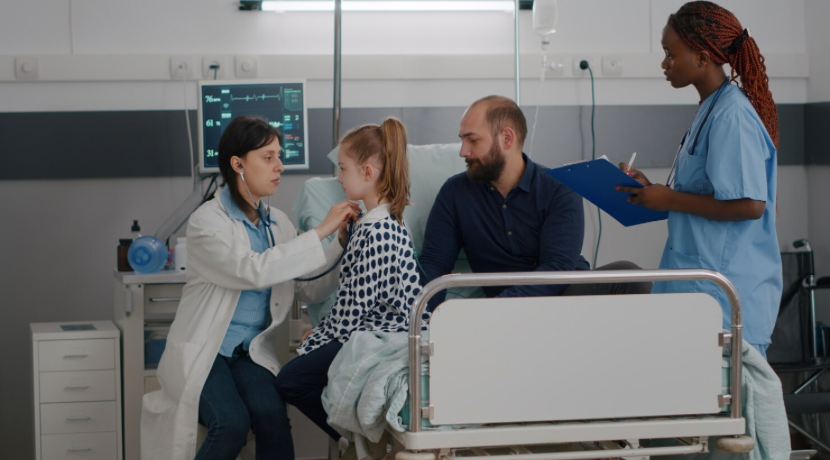Emergencies and urgent health situations can occur unexpectedly, and knowing how to handle them effectively can make a significant difference in outcomes. Whether it's a medical emergency, an accident, or an urgent health concern, being prepared and knowing the appropriate steps to take is crucial. Here’s a comprehensive guide on how to handle emergencies and urgent care situations.
Recognising Emergencies
Understanding what constitutes an emergency is the first step in managing urgent situations. Here are some common signs of a medical emergency:
- Severe chest pain: This could indicate a heart attack.
- Difficulty breathing: This might be due to an asthma attack, allergic reaction, or other serious conditions.
- Uncontrolled bleeding: Any severe bleeding that cannot be stopped.
- Loss of consciousness: Fainting or not being able to wake someone up.
- Sudden confusion or slurred speech: Possible signs of a stroke.
- Severe pain or injury: Especially if it involves broken bones, head trauma, or burns.
Immediate Actions to Take
When faced with an emergency, follow these immediate steps:
- Stay Calm: Panic can make the situation worse. Take a deep breath and focus on what needs to be done.
- Call Emergency Services: Dial 999 (or the appropriate emergency number in your location) for immediate assistance. Provide clear and concise information about the situation.
- Provide Basic First Aid: If you are trained in first aid, provide assistance until help arrives. This might include CPR, controlling bleeding, or helping someone who is choking.
- Ensure Safety: Make sure the area is safe for both you and the victim. Remove any immediate hazards if possible.
Handling Specific Situations
Here are guidelines for some specific emergencies:
Heart Attack
- Symptoms: Chest pain, shortness of breath, sweating, nausea.
- Action: Call 999 immediately. Have the person sit down and remain calm. If they have prescribed medication (like nitroglycerin), help them take it. Administer aspirin if the person is not allergic and can chew it.
Stroke
- Symptoms: Sudden numbness, especially on one side of the body, confusion, trouble speaking, severe headache.
- Action: Call 999 immediately. Note the time symptoms started, as this information is crucial for treatment.
Severe Bleeding
- Action: Apply direct pressure to the wound with a clean cloth. Keep applying pressure until help arrives. Do not remove the cloth if it becomes soaked; instead, add more layers.
Burns
- Minor Burns: Cool the burn under running water for at least 10 minutes. Cover with a sterile dressing.
- Severe Burns: Do not immerse in water. Cover with a clean cloth or dressing. Call 999 immediately.
Choking
- Action: If the person cannot cough, speak, or breathe, perform the Heimlich manoeuvre. For infants, use back blows and chest thrusts.
Urgent Care for Non-Emergent Situations
Not all health issues require emergency services. For less severe but urgent health concerns, consider the following options:
- Urgent Care Centres: These facilities handle non-life-threatening conditions such as minor fractures, infections, and severe but non-emergency illnesses. They often have shorter wait times than emergency departments.
- GP Services: Contact your GP for advice or an urgent appointment. Many GP practices offer same-day appointments for urgent concerns.
- NHS 111: In the UK, you can call 111 for non-emergency medical advice. They can guide you on the best course of action and direct you to the appropriate care services.
- Pharmacies: Pharmacists can provide advice on minor ailments and over-the-counter medications. They can also guide you on whether you need to seek further medical attention.
Preparing for Emergencies
Preparation can make a significant difference in how effectively you handle an emergency:
- First Aid Training: Consider taking a first aid course to equip yourself with essential skills.
- First Aid Kit: Keep a well-stocked first aid kit at home, in your car, and at your workplace.
- Emergency Contacts: Have a list of emergency contacts easily accessible, including family members, neighbours, and local emergency services.
- Medical Information: Keep a record of any medical conditions, medications, and allergies for each family member. This information can be crucial for emergency responders.
Conclusion
- Emergencies and urgent health situations can be stressful, but being prepared and knowing what to do can help you manage them effectively. Recognise the signs of an emergency, take immediate action, and seek the appropriate level of care. With the right preparation and knowledge, you can handle emergencies with confidence and potentially save lives.

